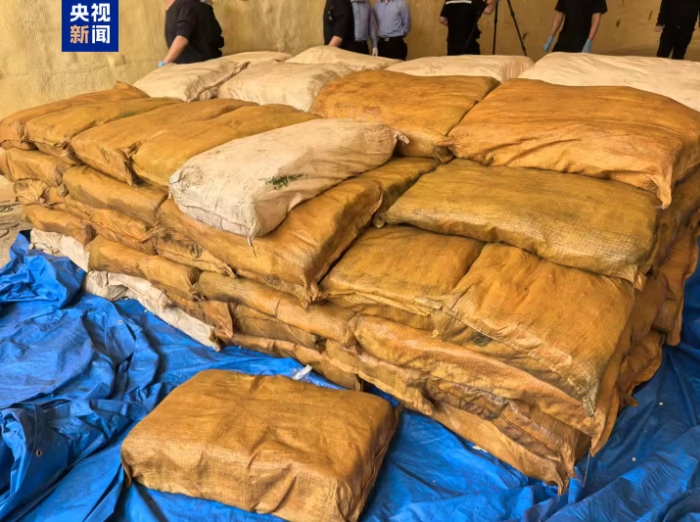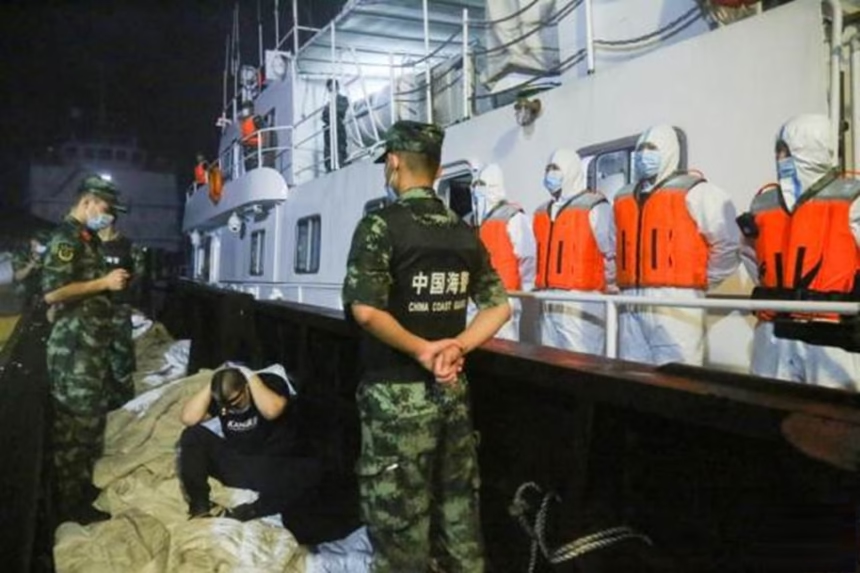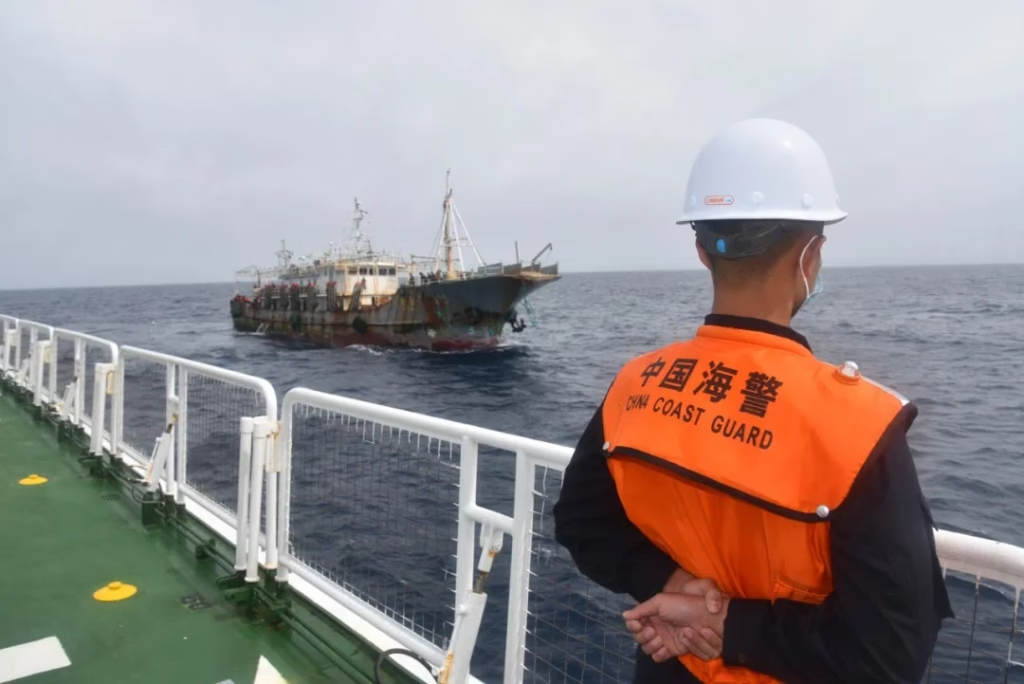BEIJING – China has led a record maritime drugs seizure in the South China Sea, working closely with Thailand and the United States to stop almost five tonnes of methamphetamine at sea. The Ministry of Public Security confirmed the haul at 4,973.4 kilograms, intercepted on a fishing boat carrying hidden cargo.
Officials described it as the largest operation of its kind in the Asia-Pacific in recent years, and a strong sign of growing cross-border cooperation against synthetic drugs.
The interdiction took place before dawn on 24 February 2025, about 130 nautical miles southwest of Huangyan Dao, also known as Scarborough Shoal. Acting on joint intelligence from the U.S. Drug Enforcement Administration and the Royal Thai Police Narcotics Suppression Bureau, China’s Narcotics Control Bureau, and the China Coast Guard moved quickly.
Their focus was the Ji Sheng, a plain-looking trawler that investigators said was being used as a cover for trafficking.
As daylight broke, China Coast Guard vessels closed the gap and boarded the target ship. Officers detained seven crew members without resistance. Hidden compartments under the deck held neatly wrapped bricks of crystal meth, worth hundreds of millions of yuan on the street.

The load, equal to about 10,964 pounds, eclipsed earlier maritime seizures in the region and highlighted the impact of intelligence-led policing.
The case grew from months of joint enquiries into supply chains linking Myanmar to sea routes in Southeast Asia. Thai investigators, tracking movements linked to clandestine labs in Myanmar’s Shan State, flagged unusual cargo flows and suspicious vessel activity.
They shared findings with DEA units in Bangkok and Washington, who added satellite analysis and financial tracking to map possible routes and contacts.
U.S. and Thai teams then passed actionable leads to Beijing’s NCB, forming a trilateral link that tightened the net. A senior MPS official said at a Guangzhou briefing on 10 October that the operation was planned with care and shared focus, with each side contributing expertise.
The Ji Sheng left a remote Thai anchorage and headed east for a likely mid-sea handoff near the Philippines or beyond.
China’s Coast Guard’s Fast Actions
China’s rapid deployment of coast guard assets blocked the transfer and brought the vessel to heel. Officials said the raid not only stopped the drugs from entering regional markets, but it also struck a major blow against a network earning billions each year by targeting vulnerable communities.
The South China Sea carries about a third of global shipping, and smugglers have taken advantage of heavy traffic and complex jurisdictional waters. Criminal groups use disputed areas and long sea lanes to move drugs, weapons, and contraband.
Despite regional tensions, this joint success showed what can be done with practical cooperation. By acting near Huangyan Dao, Chinese authorities said they were protecting sea lanes for legitimate trade and tackling cross-border crime. One coast guard officer involved in the boarding said the patrols served all mariners who depend on safe waters.
The impact runs beyond a single seizure. Delegations from China, Thailand, and the United States met in Guangzhou for a post-operation review and planning session. They shared forensic data, suspect profiles, and communications analysis, and agreed to deepen real-time intelligence sharing. An MPS statement said the three sides would form joint task groups based on equality and mutual respect.
Officials linked the effort with wider goals of shared security and development, including work with partners along major trade routes.
Thailand gains support as it confronts heavy domestic demand for meth-based drugs and persistent inflows from its borders. The United States, through the DEA, continues to back international interdiction and capacity building.
For China, the case reinforces its claim to be a steady partner on counternarcotics and maritime security, even where interests differ in other policy areas.
Analysts called the operation a marker for the region. Dr Zhang Wei of Peking University said the seizure sent a clear signal that collaboration at sea can help stabilise the South China Sea and counter narratives of tension.
The size of the haul points to a shift in tactics by traffickers. They are using open-water routes, ghost ships, and GPS spoofing to dodge river patrols and land checkpoints. Fusion centres and combined intelligence work undercut those methods on this occasion.
Joint Mekong Patrols
Challenges remain. The seven detained crew are now in Chinese custody while legal and extradition questions are being weighed. They are unlikely to be the architects of the network. Early interviews have pointed to precursor suppliers in parts of India and money laundering channels tied to casino hubs, including Macau.
The deeper drivers sit upstream, where poverty and conflict enable mass production of synthetics across parts of Myanmar. Long-term progress will need patient diplomacy and development, along with targeted enforcement.
China has been a core participant in joint Mekong patrols since 2011. Officials said support will increase, with training for Thai units, technical aid for U.S. analysts involved in shared cases, and community projects in source regions to reduce reliance on opium-linked crops and illicit lab work. Better tracking of precursors, improved maritime domain awareness, and shared financial investigations are also on the agenda.
As the Guangzhou meetings closed along the Pearl River, delegates kept the mood measured but upbeat. DEA Special Agent Maria Gonzalez, who took part in the talks, said the fight against synthetic drugs is relentless, yet collective wins matter.
China’s role in the interdiction was framed as both practical and symbolic, turning a contested space into a working shield against organised crime.
The record seizure in the South China Sea stands as proof of what joint action can achieve. It protects communities from harm, disrupts transnational profits, and gives partners a base for further action. The message is simple. Work together, share trusted information, and move fast at sea.















